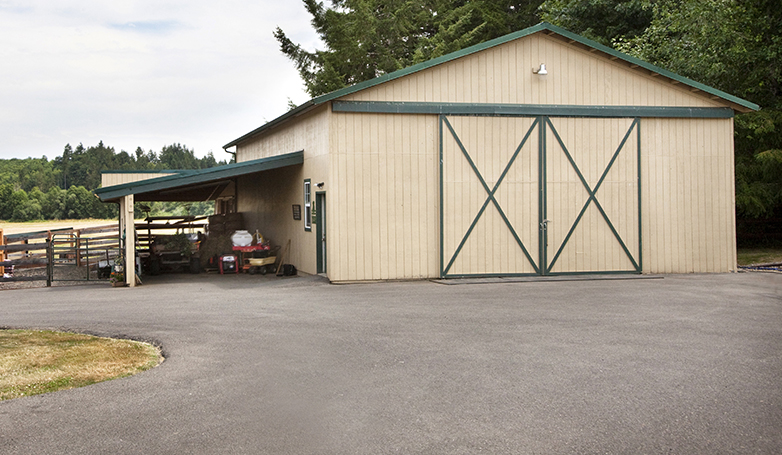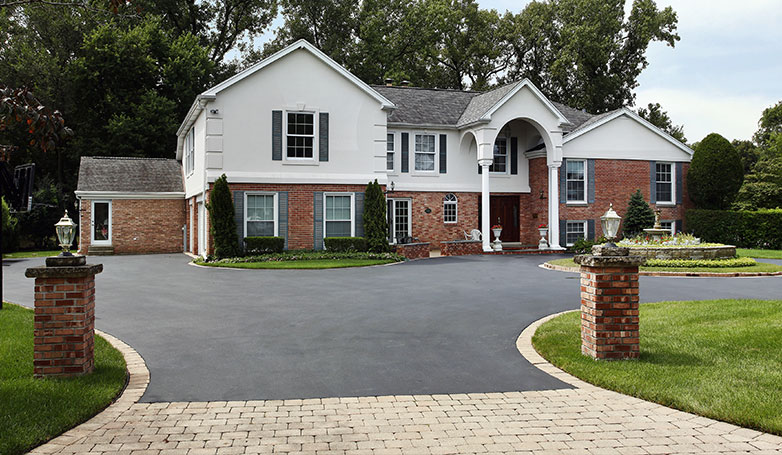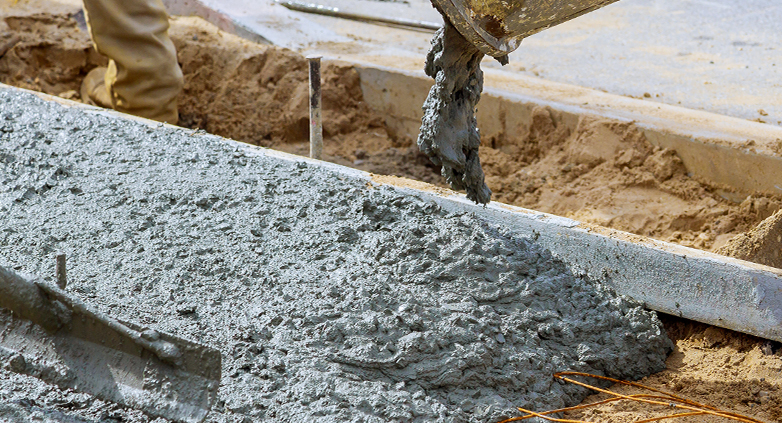Concrete Driveway Thickness – What is Your Best Option?
You might believe that concrete driveway thickness in residential and commercial settings is roughly the same. After all, they all appear to be the same and can withstand the weight of automobiles, right? Nevertheless, the degree of concrete thickness we choose when constructing a concrete driveway can significantly impact the driveway’s long-term condition.
Cracking is a common problem in driveways, especially those constructed with concrete. So, to prevent this, ensure that the concrete is of uniform thickness. Besides, your contractor will most likely ask you a few questions to determine the thickness of your concrete.
So, what is the best concrete driveway thickness?
In terms of thickness, a minimum of 4 inches is the standard requirement for passenger car driveways. However, for heavier automobiles, it is recommended to increase the thickness from 4 inches to 5 inches. According to the Tennessee Concrete Association, this adjustment will add about 20 percent to your concrete price but will increase your driveway’s load-carrying capacity by almost 50 percent.
For adequate drainage, the driveway should be sloped a minimum of 1%, or 1/8 inch per sq, towards the street to prevent water from stagnating on the driveway.
Even though many municipalities have enacted codes requiring a specified minimum thickness, the absolute amount may be larger than that needed by the code in some situations. As a result, before choosing concrete driveway thickness while creating the slab, a concrete contractor ought to consider several factors.

Read More:
So, what factors should you consider when choosing driveway thickness?
Constructing a new concrete driveway is a time-consuming task that also necessitates some pre-planning preparations. The success of the final driveway depends on determining the required concrete thickness before delivery and placing any prepared concrete.
Your driveway may well not be able to handle the load and pressure exerted on it if you misjudge concrete thickness by pouring insufficiently prepared concrete. On the other hand, if the concrete is overly thick, it could result in an unappealing driveway as well as more money spent on the delivery than required. So, the following are the factors to consider before choosing driveway thickness:
Soil condition
When determining the thickness of the concrete to be used for your driveway project, consider the stability of the underlying soil since unstable soil necessitates more reinforcement. If you are unsure whether or not the ground is solid enough to handle the ready-mix concrete once it has dried and hardened, we recommend consulting a professional for help.
Perhaps you go through with the project despite the fact that the soil beneath it is unstable; it may not be able to resist the weather conditions in your area for long. In a nutshell, ensure you seek expert advice regarding your soil type before proceeding with the project.
The driveway’s function
The purpose of the driveway has a significant impact on how a concrete driveway thickness should be. A 3″ to 4″ thick pad is sufficient for lightweight automobiles, but a forklift, RV, or dump truck are heavyweights and need a thicker slab. However, you should not be concerned about intermittent delivery trucks using the driveway since they are not usually wholly laden.
Notwithstanding, many professional contractors choose to build residential concrete driveways between 4,” and 6″ thick on a prepared base since thicker concrete provides more strength.
Budget
The impact on the budget is determined by the driveway’s preparation work, dimensions, and concrete thickness. For instance, the cost of installing four full-sized car garage driveways will vary significantly from the cost of constructing a parking pad that accommodates a small motorcycle or compact car.
In addition, the thickness of the pour, the use of rebar, the addition of a compacted base and subbase, as well as the type of color additives, finish, and texture will all affect the budget.

More Like This:
Should I use concrete for my driveway?
The simple answer is YES! For a good reason, concrete is a popular choice for constructing driveways as its slabs are incredibly sturdy and long-lasting, and they need very little upkeep. So, it would not be a bad idea if you consider using concrete for your next driveway project in both residential and commercial settings. The following are a few advantages and disadvantages of a concrete driveway to help you decide whether or not to opt for it
Pros
- Affordability: When it comes to cost, concrete is a reasonably inexpensive alternative to consider. With concrete, you may only be requiring work done on your driveway just once during the period you own your house. Notwithstanding, concrete driveway thickness requirements can influence the cost.
- Durability: concrete is a very long-lasting material. A concrete slab can endure 50 years or more if properly built and maintained.
- Load-bearing capacity: concrete is an inflexible, strong material that can withstand even the heaviest vehicles when properly installed with the appropriate base and reinforcement.
- Eco-friendly: Concrete driveways have lower embodied energy costs, making them a more environmentally sustainable paving option. That is, both producing and placing concrete uses less energy altogether.
- Low maintenance: concrete driveways require little to no maintenance, which helps to save both money and time over time. It can last indefinitely, and no weeds will develop on the paved surface.
- Heat reflectance: concrete driveways are cooler than their asphalt counterparts as they absorb fewer UV rays. They reflect the sun’s heat and do not significantly warm the air. If you want to appreciate the concrete reaction to the sun’s heat, consider walking barefoot on both asphalt and concrete surfaces on a hot day.
Cons
- Unappealing: Concrete is not the most appealing construction material, even though color embossing and stamping are feasible. However, opting for such decorative treatment will necessitate additional upkeep and do not often last as plain concrete.
- Difficult to repair: concrete driveway requires removing and replacing the entire concrete area during repair, which is hard to carry out. Besides, vehicle oil and fluid leaks can leave stains that are hard to eliminate.
- It is labor-intensive to instal: for huge projects, a concrete driveway is not a very do-it-yourself-friendly material. Because pouring a concrete driveway requires a lot of hard work, most people choose to hire a professional to do it. However, the concrete driveway thickness can add to the labor needs.
- It may crack with time: concrete, like asphalt, can crack with age. Nevertheless, this issue may be prevented if the concrete driveway is constructed by a professional contractor who strictly follows all necessary procedures.

Related Articles:
Do you need rebar or wire in a concrete driveway?
Homeowners want to ensure their driveway is thick enough to avoid cracking, but there is another factor to consider. Concrete has a low tensile strength despite its compressive strength, rendering it susceptible to expanding over time, which leads to cracking.
However, the concrete thickness can not be used to increase its tensile strength. Consequently, another material (either wire or rebar) will be used to reinforce the concrete.
For residential areas with lower thickness and strength requirements, wire is more commonly used than rebar. In contrast, rebar is often an excellent option to consider for thicker driveways and areas with a lot of traffic.
Conclusion
Some factors determine concrete driveway thickness; however, most concrete driveways in residential settings are 4″ thick 3,000 to 4,000 per square inches concrete slabs on a 4″ to 8″ prepared and compressed gravel base. Nevertheless, it is wise to consult with an expert contractor when determining the actual thickness that would be best for your driveway project.


